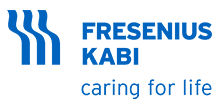预约演示
更新于:2025-05-07
Parenteral nutrition associated cholestasis
肠外营养相关的胆汁淤积
更新于:2025-05-07
基本信息
别名 PNAC、Parenteral Nutrition - Associated Cholestasis、Parenteral nutrition associated cholestasis + [6] |
简介 Cholestasis that results from prolonged total parenteral nutrition. It is caused by diminished bile flow from the liver into the duodenum. It may result in cirrhosis and liver failure. Preterm infants are most susceptible to liver damage. |
关联
2
项与 肠外营养相关的胆汁淤积 相关的药物作用机制 脂质调节剂 [+1] |
在研机构 |
原研机构 |
最高研发阶段批准上市 |
首次获批国家/地区 美国 |
首次获批日期2004-11-10 |
靶点- |
作用机制 脂肪酸替代品 |
在研适应症 |
非在研适应症 |
最高研发阶段临床2期 |
首次获批国家/地区- |
首次获批日期1800-01-20 |
55
项与 肠外营养相关的胆汁淤积 相关的临床试验NCT06274788
Title: a Single-arm, Open-label, Prospective, Multicenter Safety Study to Evaluate the Occurrence of Essential Fatty Acid Deficiency (EFAD) in Pediatric Patients with Parenteral Nutrition-associated Cholestasis (PNAC) Who Require More Than Eight Weeks of Omegaven Treatment
This study will demonstrate safety in pediatric patients with Parenteral Nutrition-Associated Cholestasis treated with Omegaven®, which is indicated as a source of calories and fatty acids in this patient population
开始日期2024-12-15 |
申办/合作机构 |
NCT06049680
A Single-arm Open-label Safety Study of SMOFlipid to Evaluate the Risk of Developing Essential Fatty Acid Deficiency (EFAD) and/or Parenteral Nutrition-associated Cholestasis (PNAC) in Pediatric Patients 1 Month to 17 Years of Age and in Adult Patients, Who Are Anticipated to Need 8 Weeks or Longer of Parenteral Nutrition Treatment
Evaluate the risk of developing EFAD and/or PNAC in adult and pediatric patients 1 month of age and older, who are anticipated to need 8 weeks or longer of parenteral nutrition treatment with SMOFlipid.
开始日期2024-10-28 |
申办/合作机构 |
JPRN-jRCT2021230032
Investigator-initiated Clinical Trial to Evaluate the Efficacy and Safety of Fish Oil-based Intravenous Fat Emulsion for Pediatric Parenteral Nutrition-associated Cholestasis (Intestinal Failure-associated Liver Disease)
开始日期2023-11-01 |
申办/合作机构- |
100 项与 肠外营养相关的胆汁淤积 相关的临床结果
登录后查看更多信息
100 项与 肠外营养相关的胆汁淤积 相关的转化医学
登录后查看更多信息
0 项与 肠外营养相关的胆汁淤积 相关的专利(医药)
登录后查看更多信息
465
项与 肠外营养相关的胆汁淤积 相关的文献(医药)2025-04-01·Biochemical and Biophysical Research Communications
A liver-specific mouse model for MYO5B-associated cholestasis reveals a toxic gain-of-function as underlying disease mechanism
Article
作者: Xing, Qing-He ; Qiu, Yi-Ling ; Cheng, Ye ; Feng, Jia-Yan ; Chi, Hao ; Wang, Jian-She ; van IJzendoorn, Sven C D ; She, Hui-Yu
2025-03-01·Seminars in Liver Disease
Pathogenesis and Management of Intestinal Failure-Associated Liver Disease
Review
作者: Khalaf, Racha T. ; Sokol, Ronald J. ; Lovell, Mark ; Abi-Aad, Sasha-Jane
2025-02-01·Liver International
Liver GPBAR1 Associates With Immune Dysfunction in Primary Sclerosing Cholangitis and Its Activation Attenuates Cholestasis in Abcb4−/− Mice
Article
作者: Milkiewicz, Malgorzata ; Urbani, Ginevra ; Milkiewicz, Piotr ; Bordoni, Martina ; Banales, Jesus M. ; Marchianò, Silvia ; Zampella, Angela ; Massa, Carmen ; Di Giorgio, Cristina ; Sepe, Valentina ; Spinelli, Lucio ; Fiorucci, Stefano ; Morretta, Elva ; Biagioli, Michele ; Distrutti, Eleonora ; Lachi, Ginevra ; Lapitz, Ainhoa ; Cari, Luigi ; Bellini, Rachele ; Monti, Maria Chiara
1
项与 肠外营养相关的胆汁淤积 相关的新闻(医药)2024-03-26
NORTH CHICAGO, Ill., March 26, 2024 /PRNewswire/ -- BLR Bio, an early stage biotech company in Rosalind Franklin University's Helix 51 biomedical incubator, released new data on its novel cancer therapy recently at the 7th annual Labroots Drug Discovery and Development conference. The data points to a promising strategy to boost the effectiveness of existing drugs in pancreatic cancer and other solid-tumor cancers.
According to the American Cancer Society, some 66,000 persons in the U.S. are diagnosed annually with pancreatic cancer, a disease with a very low survival rate that is projected to take 51,000 lives in 2024.
BLR Bio's new findings are based on a long-term research relationship between the company and oncology researchers at the Mario Negri Institute for Pharmacological Research in Milan and Bergamo, Italy, and follow work published with that team in the journal Cells in 2020.
The current study, "BLR-100: Can a Novel Tumor Stroma Targeting Agent Reduce Chemotherapy Load as a Potential Effective Combination Therapy," demonstrates that the use of BLR's compound — BLR-100 — could provide similar efficacy to a doubling of the dose of existing chemotherapy without increasing side effects of these therapeutics, which often impact patient quality of life during treatment.
"The high dose chemotherapy necessary for efficacy in high mortality cancers like pancreatic adenocarcinoma (PNAC) are often complicated and have high rates of toxicity," said BLR Bio CEO Dr. Bruce Riser. "Finding an approach to use lower doses while maintaining efficacy has been a constant search for cancer treatments."
"While other approaches are being pursued to decrease the chemotherapy load, our approach is unique," Dr. Riser said. "BLR-100 targets the formation of the protective tumor stroma, a fibrotic-like element that is thought to retard the entry of chemo-therapeutic agents."
BLR-100 is also expected to allow better access to normal immune clearance mechanisms as well as the new immuno-oncology drugs, which to date have not been effective in cancers like PNAC. BLR Bio is currently completing IND-enabling studies for this novel compound.
Dr. Ronald Kaplan, RFU executive vice president for research, said, "The Mario Negri Institute is a world-renowned cancer research organization, and we are delighted to see this ongoing collaboration with one of our companies to further the development of this novel therapy for such a devastating disease."
About BLR Bio: blrbio.com
About RFU: rosalindfranklin.edu
Office of Marketing and Communications judy.masterson@rosalindfranklin.edu
分析
对领域进行一次全面的分析。
登录
或

生物医药百科问答
全新生物医药AI Agent 覆盖科研全链路,让突破性发现快人一步
立即开始免费试用!
智慧芽新药情报库是智慧芽专为生命科学人士构建的基于AI的创新药情报平台,助您全方位提升您的研发与决策效率。
立即开始数据试用!
智慧芽新药库数据也通过智慧芽数据服务平台,以API或者数据包形式对外开放,助您更加充分利用智慧芽新药情报信息。
生物序列数据库
生物药研发创新
免费使用
化学结构数据库
小分子化药研发创新
免费使用


